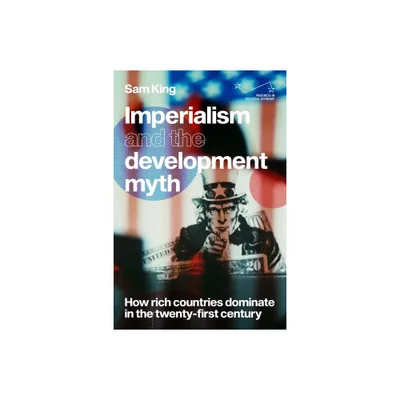Home
The Political Economy of Discontinuous Development: Regional Disparities and Inter-regional Conflict
Loading Inventory...
Barnes and Noble
The Political Economy of Discontinuous Development: Regional Disparities and Inter-regional Conflict
Current price: $95.00


Barnes and Noble
The Political Economy of Discontinuous Development: Regional Disparities and Inter-regional Conflict
Current price: $95.00
Loading Inventory...
Size: OS
*Product Information may vary - to confirm product availability, pricing, and additional information please contact Barnes and Noble
Outbursts of regional conflict within national boundaries have characterized recent years. Sub-national statesincluding parts of the Soviet Union, India, Canada, and Yugoslaviadissatisfied with their central governments, seek forms of independence to pursue autonomous development paths. These region/state conflicts have occurred in nations at all levels of development (Canada and Indonesia, France and Papua New Guinea), under diverse economic systems (the USSR and Canada, Yugoslavia and Spain), and across political systems (federations such as India and unitary states such as Italy). Bookman's study develops methods whereby both state and region can evaluate the region's potential to sustain economic growth autonomouslyfilling the gap in current perceptions of inter-regional relations. Bookman introduces the concept of discontinuous development to facilitate the analysis of sub-national regions that have varying levels of development. The volume's emphasis on high-income regions within both agricultural and industrial nations and on the economic basis of conflict makes it a unique contribution that assesses the viability of regions as autonomous entities. The major part of the volume studies empirical evidence from India and Yugoslavia, especially timely in light of present ethnic and religious conflicts in both countries.
The volume is divided into three sections: Foundations; Discontinuous Development and Inter-regional Conflict; and Empirical Evidence from India and Yugoslavia. The first section presents a theoretical framework for issues internal to regions, as well as regions relative to the nation. It also outlines four ways of studying inter-regional conflict which are explored in the empirical chapters. Part 2 analyzes eight high-income regions characterized by discontinuous development and relates their experiences to the four hypotheses presented earlier. The last section contains empirical chapters testing the model in the context of India and Yugoslavia. The final chapter contains a full discussion of the hypotheses pertaining to secession, and offers some suggestions concerning the possibilities of secession as the outcome of inter-regional conflict. The explosive consequences of recent trends make it imperative that scholars in development economics, political economy, political science, and macroeconomics as well as policy makers comprehend the inter-regional economic and political relationships behind these conflicts.


















